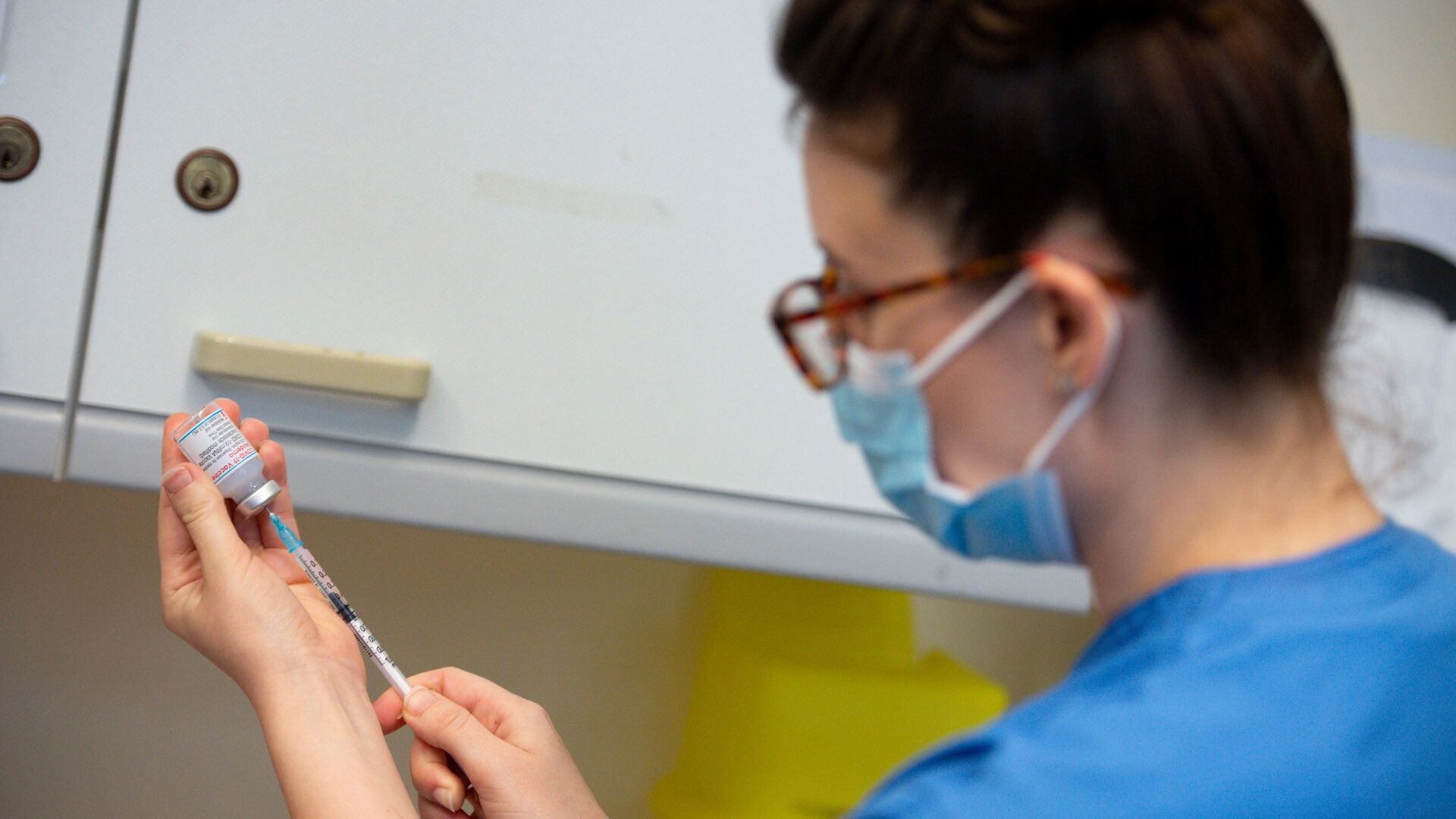Researchers at the University of Oxford announced the start of a human challenge trial to learn more about what happens when people who have already been infected with the coronavirus become infected again, The Daily Mail reported on Monday.
Researchers would look at what kind of immune response could help people avoid getting infected with COVID-19 again, as well as how the immune system responds to the virus a second time. They will expose any volunteer to the virus, with only those who have a high enough immune response avoiding reinfection.
"If we can determine... that a certain level of antibodies means it's not possible to reinfect somebody, that would feed very immediately into designing the most effective vaccines," Helen McShane, the study's lead scientist and a professor of vaccinology at the University of Oxford's Department of Paediatrics is quoted in the report as saying.
That would mean vaccines that provide that ideal degree of immunity could be developed quickly and approved without the need for tens of thousands of people to be tested, according to the report.
The Wellcome Trust-funded research, which is set to begin this month after gaining ethics approval, will recruit people aged 18 to 30 who have been naturally infected with the novel coronavirus. They will be re-exposed to the virus in a safe and monitored environment, while a team of researchers keeps track of their progress in fighting it.
"When we re-infect these participants, we will know exactly how their immune system has reacted to the first COVID infection, exactly when the second infection occurs, and exactly how much virus they got," McShane said.
It is hoped that apart from understanding the virus, the research would aid scientists in developing tests that can accurately determine whether or not people are protected.
The Oxford research will be conducted in two phases. The aim of the first phase, which will include 64 healthy volunteers, is to determine the lowest dose of virus that can take hold and begin replicating. After the dosing amount has been determined, it will be used to infect participants in the study's second phase, which is set to begin this summer.
The patients will be quarantined for 17 days at a hospital, where they will be cared for by the study team until they are no longer at risk of infecting others.
Those who experience symptoms will be given a Regeneron monoclonal antibody injection, which includes laboratory-made antibodies that have been shown in clinical trials to minimize the risk of disease progression, according to the report.
The trial's second phase will focus on two distinct areas.
"First, we will define very carefully the baseline immune response in the volunteers, before we infect them. We will then infect them with the dose of virus chosen from the first study and measure how much virus we can detect after infection," McShane said. "Second, we will measure the immune response at several time points after infection so we can understand what immune response is generated by the virus."
"The information from this work will allow us to design better vaccines and treatments, and also to understand if people are protected after having Covid, and for how long," she added.
The research will last for a total of 12 months, with eight follow-up appointments following discharge.
McShane stated that those who participate would be compensated for their contributions, which would be just under £5,000 per person.
In the UK, similar research involving 90 people of the same age group is ongoing at the moment, in which volunteers are infected with the coronavirus in order to test vaccines and treatments on them.
Another observational research, which included mainly US Marine Corps members aged 18-20 and was published in the Lancet, found that between May and November 2020, about 10% of participants who had previously caught coronavirus were re-infected.
Human challenge trials have aided the development of therapies for diseases like measles, tuberculosis, typhoid, cholera, and influenza over the years.



